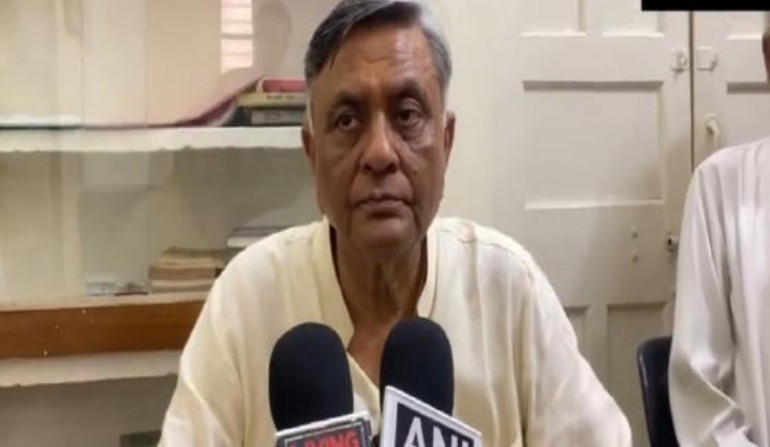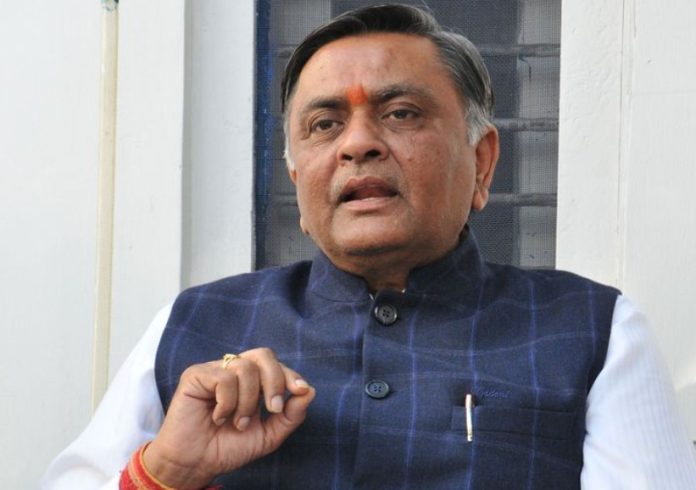The recent collaborative move by the state and central governments regarding the security arrangements for senior BJP leader Manoranjan Kalia has captured significant political and public attention across Punjab and beyond. This decision marks a heightened sense of urgency and responsibility towards the safety of political figures in the region, especially in the context of growing security threats and political tensions that have occasionally flared in the state.
Manoranjan Kalia, a prominent figure in Punjab politics and a senior member of the Bharatiya Janata Party, has long played a pivotal role in the state’s political dynamics. Having served in several key positions over the years, including being a cabinet minister in previous governments, his influence in shaping the party’s direction in Punjab is widely acknowledged. With such stature comes both respect and risk, the latter of which appears to have been taken more seriously now with the enhanced measures announced recently.
The decision to strengthen Kalia’s security has come in the wake of intelligence reports that suggested potential threats to his life. These alerts, reportedly stemming from ongoing investigations and surveillance by state intelligence units and central security agencies, pointed to credible risks emanating from extremist groups and organized criminal elements. These groups, which have often used high-profile political figures as targets to send out broader messages, are said to be under increased scrutiny, prompting authorities to act proactively rather than reactively.
In a high-level meeting attended by top officials from the Union Ministry of Home Affairs, Punjab Police, and other intelligence agencies, a comprehensive review of Kalia’s current security protocol was conducted. Following the review, it was decided that his security would be upgraded significantly, transitioning him to a higher protection category. While specifics of the arrangements have not been made public due to operational sensitivity, sources indicate that the new measures include enhanced personnel deployment, close protection officers (CPOs), and advanced vehicular protection.
What stands out in this case is the collaborative nature of the response. In a political environment often marked by sharp rivalries, the bipartisan approach taken by the state-led Aam Aadmi Party government and the central BJP administration reflects a shared understanding that the safety of public representatives transcends political boundaries. Chief Minister Bhagwant Mann, despite ideological differences with the BJP, reportedly gave swift consent to the recommendations made by the central agencies, ensuring that the state machinery extended its full cooperation.

The Punjab Police have also undertaken additional steps in response to the overall atmosphere of rising security concerns. A thorough review of all VIP security arrangements is currently underway, with the aim of ensuring that all public leaders, irrespective of party affiliation, are adequately protected against potential threats. It is believed that the list of politicians under increased surveillance and security is growing as law enforcement agencies become more vigilant, particularly in light of the volatile security landscape of Punjab in recent years.
The state has witnessed sporadic incidents linked to separatist propaganda and transnational criminal networks, some of which have found support on social media and from foreign entities. These developments have caused concern among law enforcement agencies, particularly as some of these groups have targeted political leaders with polarizing ideologies or high public profiles. The central government, in response, has been coordinating more closely with states like Punjab to counter such threats with improved technology, coordination, and manpower.
For Manoranjan Kalia himself, the decision brings a mix of assurance and reflection. In statements made to the press following the announcement, Kalia thanked both the state and central governments for taking his security seriously and responding with urgency. He reaffirmed his commitment to serving the people of Punjab and indicated that no threats would deter him from his public service responsibilities. “I trust the institutions of our democracy and their ability to protect every citizen, including those in public service,” he remarked, adding that his focus remains on developmental and social issues facing the state.
Political analysts have noted that while enhanced security measures for politicians are not uncommon, such decisions often signal deeper undercurrents in the state’s law and order situation. The timing of this decision also coincides with broader discussions on law enforcement reforms in Punjab, efforts to modernize the police force, and the tightening of surveillance on suspected extremist networks. The move to prioritize Kalia’s security, therefore, may be part of a wider push to safeguard the state’s democratic institutions and reassure the public that elected leaders are not operating under fear or duress.
Opposition voices, while largely supportive of the move, have also used the occasion to reiterate demands for better overall security infrastructure for all political workers, particularly those at the grassroots level who often face threats without the benefit of high-level protection. They argue that political violence can only be truly countered when safety is ensured not just for senior leaders, but for every party worker who is out on the ground, engaging with the public.
Civil society organizations, too, have reacted to the announcement, with some expressing concern over the growing sense of insecurity among politicians and citizens alike. They have called for greater transparency in security decisions and the need to strike a balance between protective measures and the right of public leaders to remain accessible to the people they serve. While not directly criticizing the decision, some commentators have urged the government to equally prioritize social reforms and law enforcement improvements that address the root causes of insecurity.
The larger implication of this development is that security is no longer just a question of personnel deployment, but also of political consensus and governance efficiency. As Punjab moves into an increasingly complex socio-political phase marked by economic challenges, agrarian concerns, and a youth population demanding better opportunities, the protection of its leaders becomes intertwined with the safeguarding of its democratic processes.
In the weeks to come, further steps are expected from both the state and central governments to reinforce VIP security protocols, conduct risk assessments of other leaders, and improve coordination between agencies. Training of specialized units, procurement of surveillance equipment, and community outreach programs are also said to be part of the broader security strategy being formulated.
In conclusion, the joint decision by the state and central governments to enhance the security cover for BJP leader Manoranjan Kalia represents a significant and timely step in ensuring that political leaders in Punjab can continue to serve without fear. It is also a reminder that public safety and political stability are interconnected goals that require continuous effort, vigilance, and cooperation across the political spectrum.


